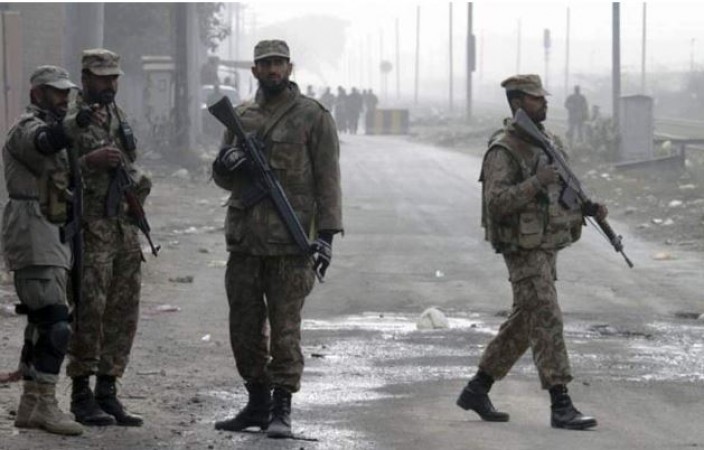
Islamabad: In recent developments, a major terrorist attack occurred at the Pakistani Air Force base, resulting in significant loss of life and property. However, the Pakistani government chose not to disclose this information to its citizens. Tehreek-e-Jihad Pakistan, a group that emerged earlier this year, claimed responsibility for the attack in Mianwali, East Punjab province, which occurred on a Saturday. The Pakistani Army initially reported that all nine terrorists involved in the attack had been eliminated and that an aircraft stationed at the airbase had been damaged but was already out of service.
Contrary to these official statements, a Pakistani journalist, Ayesha Siddiqui, has revealed that the actual casualties were much higher than the government acknowledged. According to her article in Indian News Platform, the attack on the MM Alam Air Base in Mianwali, Punjab, had a devastating impact. She pointed out that Pakistan's security establishment had believed they had successfully eradicated terrorism after launching several counter-terrorism operations, with the last one being Radd-ul-Fasaad in 2017.
Siddiqui wrote, "Even those who did not entirely agree with this assessment could not have anticipated that terrorists would strike a high-value target in Punjab, which is generally considered a safe region. The attack in Mianwali has raised concerns that it could mark the beginning of a second wave of terrorism in Punjab. This should serve as a wake-up call for those in power and emphasize the country's vulnerability to violence."
The journalist exposed the inconsistencies in the official narrative, highlighting that despite the airbase's robust manpower, infrastructure, and security measures, the attack was carried out. The base primarily housed Chinese Karakoram-8 and Pakistani Super Mushk trainer aircraft, and newspaper reports and statements from the Inter-Services Public Relations (ISPR) mentioned the loss of three such aircraft, which were already decommissioned. This indicates that there may have been older Chinese F-7s parked at the base as well.
Siddiqui reported, "Sources I spoke to suggest that the Pakistan Air Force (PAF) and ISPR are concealing the true extent of the damage, with the actual loss being 14 aircraft and the tragic loss of 35 military personnel. These numbers underscore the militants' capability to attack such installations." She called for enhanced security measures, including providing guards with night vision devices, thermal imaging equipment, and improved resources.
To provide context, the attack involved nine heavily armed terrorists targeting a training base of the Pakistani Air Force (PAF) in Punjab province. Despite the Pakistani Army's initial claim of eliminating all the terrorists, Ayesha Siddiqui's report sheds light on the disparity between the government's official statements and the actual situation, emphasizing the need for transparency and security improvements.
It's crucial to note that a day before the attack on the airbase, Pakistan experienced three separate terrorist incidents in which 17 soldiers lost their lives. The Pakistani army stated that the Mianwali training base operation had been completed, with all nine terrorists neutralized. They confirmed minor damage to three aircraft that were already out of operation, but no damage to operational PAF assets.
India-Bhutan Rail Links and Trade Expansion: A Strategy with Implications for China
BJP Unveils Fourth List of Candidates for Telangana Assembly Elections
India Successfully Tests Short-Range Ballistic Missile 'Pralay' Off Odisha Coast